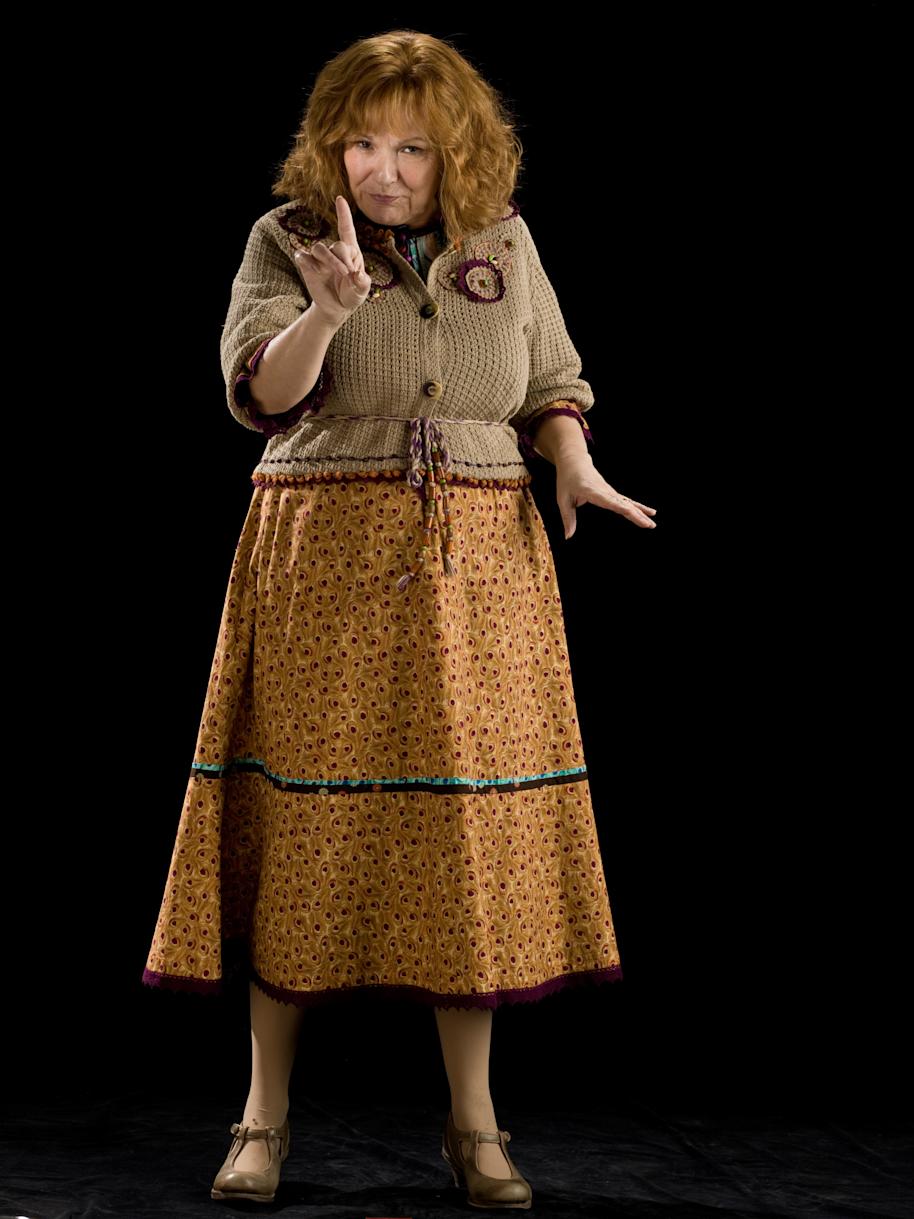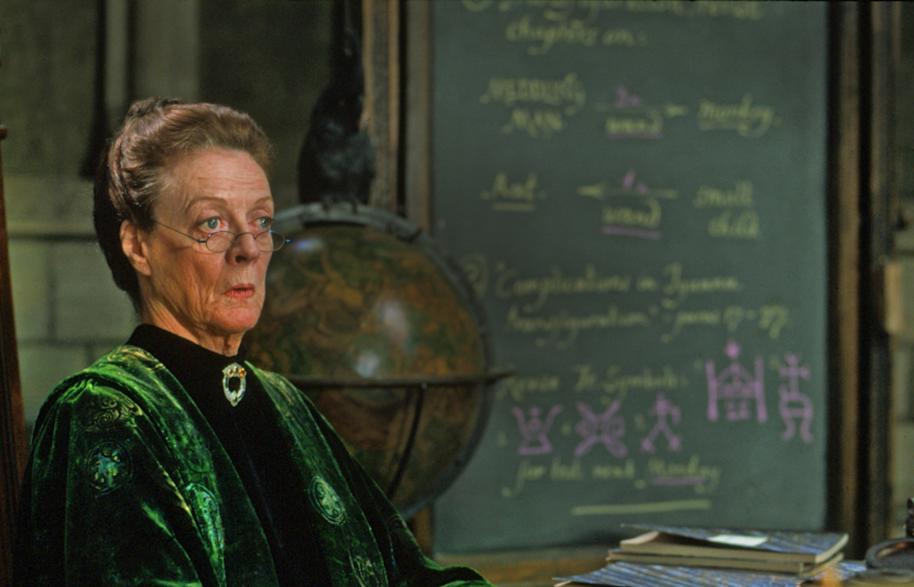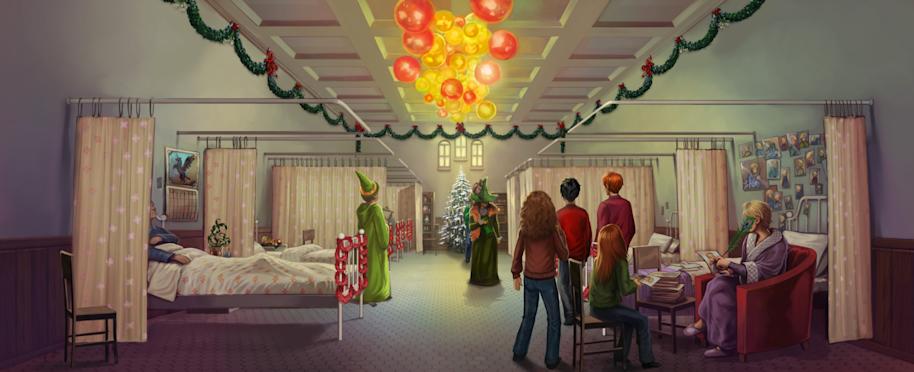
Here are a selection of moments from J.K. Rowling’s stories that mean even more to us as parents.
PS: Grab a tissue.
Hagrid’s lament
The opening chapters of Philosopher’s Stone, in which a wailing Hagrid carried the infant Harry to safety, carry greater significance on a re-read, because now you know just why Hagrid was howling for tiny Harry. This little boy faced a frightening future without the security and love of his parents following their tragic murders – and now he must live with the Dursleys. Having lost both his parents too, no wonder it hit Hagrid so hard.
‘Could I – could I say goodbye to him, sir?’ asked Hagrid.
He bent his great, shaggy head over Harry and gave him what must have been a very scratchy, whiskery kiss. Then, suddenly, Hagrid let out a howl like a wounded dog.
Harry Potter and the Philosopher’s Stone
Something to reflect on
Harry’s discovery of the Mirror of Erised brought short relief. Although he could now finally see his family inside his enchanted reflection, he could never talk to them, hug them, know them. Dumbledore’s gentle reminder – ‘It does not do to dwell on dreams and forget to live’ – is a lesson to us all, to appreciate our loved ones in the here and now.

Molly’s ire
Reading Molly’s rants as a child, you might have rolled your eyes at its familiarity, the overtones of ‘How could you?’ and ‘How dare you?’ ringing in your own ears. Reading as a parent, it’s all too familiar: the idea of your child putting themselves in danger and the overwhelming relief that they’re okay can make you see red. Go Molly! Ron, you’ve been told.

The anguish of Amos
Poor, innocent young Cedric Diggory and the anguish of his parents: sobbing Mr Diggory, and Mrs Diggory, so numb with grief she seemed beyond tears. Our very worst nightmare was their reality, and it is heartbreaking to imagine.
Then Dumbledore’s face, which was still blurred and misted, came closer.
‘Harry, you can’t help him now. It’s over. Let go.’
‘He wanted me to bring him back,’ Harry muttered – it seemed important to explain this. ‘He wanted me to bring him back to his parents ...’
Harry Potter and the Goblet of Fire
‘Have a biscuit, Potter.’
Professor McGonagall was a notably stoic woman, and, as you possibly spotted, did not suffer fools gladly. Although her hard edges may have been mistaken for her being cold, Minerva was anything but, as we saw with her interactions with Harry over the years.
A particular favourite piece of surprising McGonagall affection was when Harry tried to explain why he had a massive screaming match with Professor Umbridge during Order of the Phoenix, and his teacher simply reacted by offering Harry a biscuit. This was the subtle nature of Professor McGonagall’s protective will over Harry. With no parents to turn to, Professor McGonagall’s quiet support of Harry (in the form of a delicious biscuit) was one of those moments where we appreciated McGonagall’s relationship with Harry all the more.

A telling Boggart
Whatever our greatest fear may be, the shape-shifting Boggart could take it on in a physical form until it could be laughed off with the charm ‘Riddikulus!’ During Professor Lupin’s first lesson where his class encountered Boggarts, we saw spiders, rattlesnakes, banshees and even Professor Snape himself. All natural childhood fears.
But for an adult a Boggart could be even more spine-chilling, as we saw when Molly Weasley’s Boggart took on the shapes of her family. Her fear was palpable as her husband, her sons and Harry lay as if dead before her eyes, and there’s nothing ridiculous about that.
The tragedy of Mr and Mrs Longbottom
As a parent, there’s a lot of giving. Love, protection, energy, support, corned beef sandwiches – it’s constant. Mad-Eye Moody told Harry that Alice and Frank Longbottom would be ‘better dead than what happened to them’ – tortured into insanity by Bellatrix Lestrange. And although they couldn’t give their son Neville any of the above, Alice did present a tragic gesture in the form of an empty Drooble’s Best Blowing Gum wrapper at every visit. It’s totally understandable that Neville just couldn’t throw them away.

Lost memories
The revelation that Hermione had modified her parents’ memories in the wake of Voldemort’s ascent was used to great, yet devastating effect. Magically convincing the pair they were a childless couple called Wendell and Monica Wilkins, Hermione recalled one of her most tragic spells to Harry with tears swimming in her eyes.
For parents, protecting your children from danger is second nature. Here that role is reversed so movingly – and it’s heartening to know that in the stories, Mr and Mrs Granger’s precious memories of their daughter were merely modified, and not forever destroyed.
‘I’ve also modified my parents’ memories so that they’re convinced they’re really called Wendell and Monica Wilkins, and that their life’s ambition is to move to Australia, which they have now done. That’s to make it more difficult for Voldemort to track them down and interrogate them about me – or you, because unfortunately, I’ve told them quite a bit about you.’
Harry Potter and the Deathly Hallows
Molly’s revenge
During the Battle of Hogwarts, Molly Weasley’s previously mentioned Boggart turned out to be an ominous prediction of things to come. Her worst fears were realised; one of her sons was dead. It was with pure rage and grief combined that Molly then protected her daughter from the evil Bellatrix without a moment’s hesitation.
Maternal instinct should not be underestimated, and in this instance, Bellatrix didn’t stand a chance. Molly may have been defeated by the Boggart but she had no problem finishing off the dastardly Death Eater with a rallying cry of, ‘NOT MY DAUGHTER, YOU BITCH!’

We open at the close
Harry’s parents’ death is the theme that ties the first and final books firmly together, and the echoes of James and Lily are with Harry right at the very end of Deathly Hallows. They both died to protect him; the protective magic Lily left upon Harry the perfect allegory for how we all feel as Muggle parents. We can all admire the bravery and selflessness of Lily’s sacrifice, and as parents, we can nod in recognition – for in such dire circumstances, no other choice can be made.
‘Your mother died to save you. If there is one thing Voldemort cannot understand, it is love. He didn’t realise that love as powerful as your mother’s for you leaves its own mark. Not a scar, no visible sign ... to have been loved so deeply, even though the person who loved us is gone, will give us some protection for ever.’
Harry Potter and the Philosopher’s Stone



